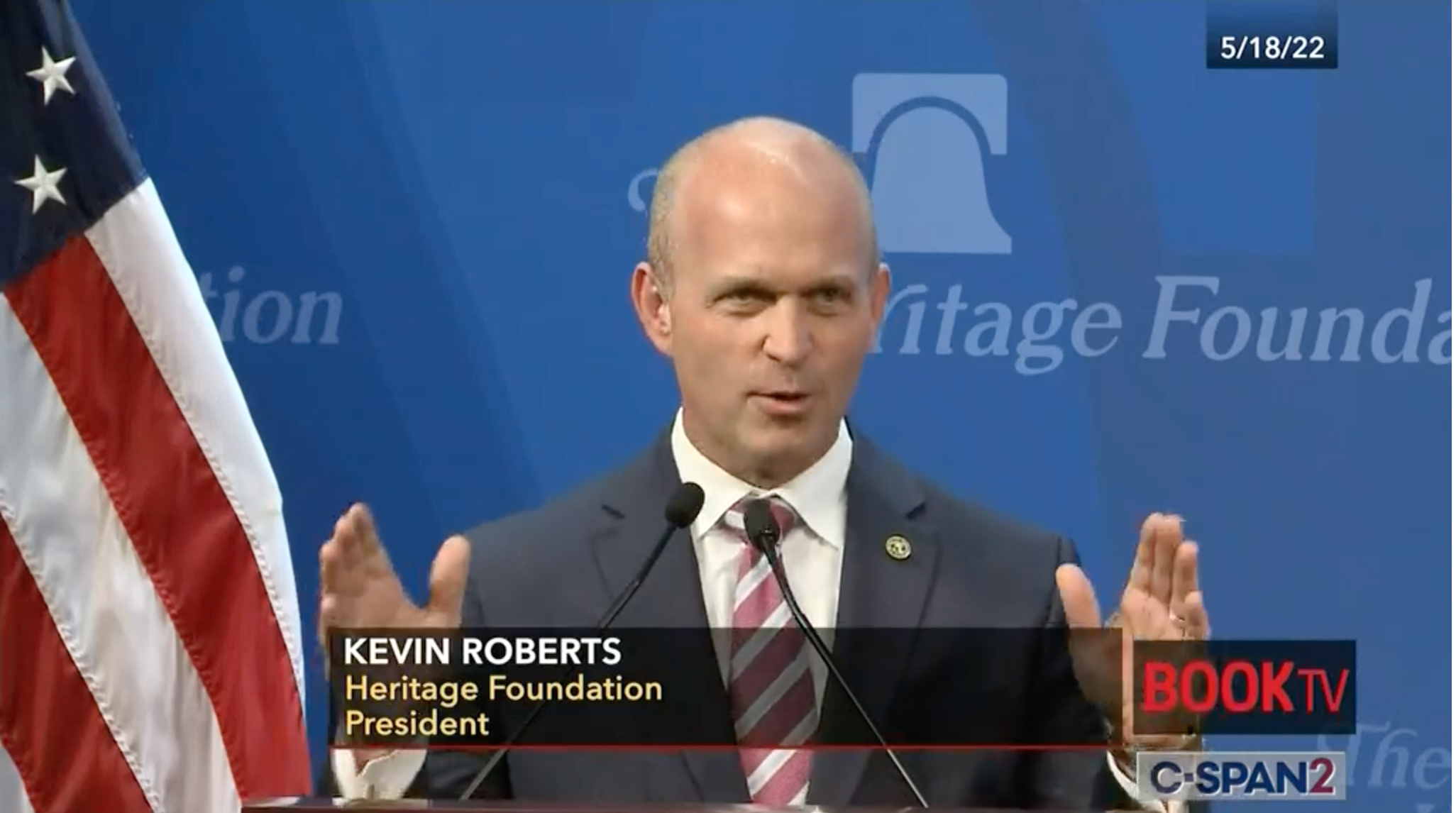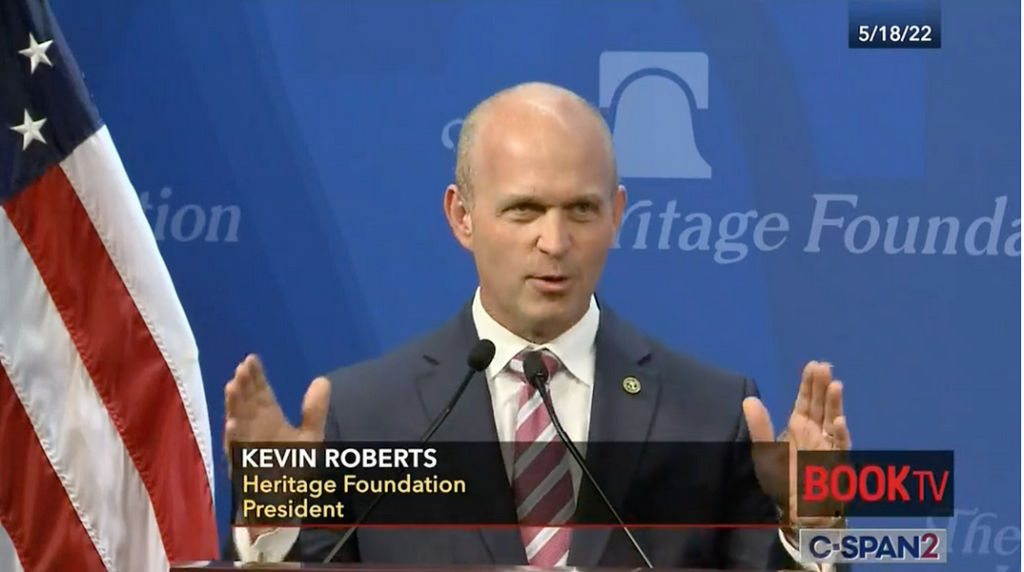Happy Thursday! We’re unfortunately too tired to come up with any witty banter to kick off today’s newsletter, but we trust you’ll give us some suggestions in the comments.
Quick Hits: Today’s Top Stories
-
The White House announced early Thursday morning it had brokered a tentative deal between rail companies and union officials to prevent a rail worker strike that was scheduled to begin today, which experts had feared would bring more turmoil to American supply chains. The move came after days of increasingly frantic political maneuvering: Senate Republicans had sought to pass a resolution by unanimous consent yesterday that would’ve forced unions and railroad companies to abide by the recommendation of a presidential emergency board established by President Joe Biden, but Sen. Bernie Sanders blocked it, claiming workers needed additional paid sick leave.
-
The U.S. will release $3.5 billion of Afghan central bank funds—frozen after the Taliban seized control of the country—to a trustee-managed fund set up by the U.S., Switzerland, and Afghan economists. The fund is intended to help stabilize Afghanistan’s economy without turning the money over to Taliban-controlled institutions. U.S. officials said the funds could eventually be transferred to Afghanistan’s central bank, but that the U.S. currently doesn’t have confidence the bank could keep it out of criminal or Taliban hands.
-
The Justice Department announced Wednesday it had filed criminal charges against three Iranians accused of cyberattacks against entities in the U.S., as well as in Russia, Israel, and elsewhere. A DOJ official said the Iranian government permitted—but didn’t sponsor—the attacks. The Treasury Department also announced sanctions against 10 individuals and two groups connected to the Iranian Islamic Revolutionary Guard Corps for alleged ransomware and other cyberattacks.
-
The Bureau of Labor Statistics reported Wednesday that the Producer Price Index—a measure of what suppliers and wholesalers are charging their customers—decreased 0.1 percent in August on a seasonally adjusted basis, after decreasing 0.4 percent in July and increasing 1 percent in June. On an annual basis, PPI inflation continued to come down from record highs, but remained hot at 8.7 percent.
Partisanship Over Policy at the Heritage Foundation

We’re not breaking any news to you when we note that the political right has undergone some pretty fundamental shifts over the last decade. Few institutions in Washington embody this realignment as well as the Heritage Foundation. Founded in the early 1970s and built out in the 1980s to develop and advance policy priorities for movement conservatives, Heritage has been a fixture in Republican politics for nearly half a century. Its central tenets: Free competitive enterprise, limited government, individual liberty and a strong national defense.
But “Republican politics” have changed quite a bit in recent years, and Heritage’s leadership will be the first to admit they have changed right along with the party. In a piece for the site today, Audrey and Charlotte highlight how that shift in approach is manifesting itself at the think tank and the toll it’s taking on the institution.
For many analysts and fellows at Heritage, the think tank’s approach to the war in Ukraine was the last straw.
In the weeks after Russian tanks rolled across the Ukrainian border on February 24, Luke Coffey was busy crafting the Heritage Foundation’s proposed policy responses. As the think tank’s lead policy analyst on Ukraine, he saw the House’s $40 billion supplemental aid package to the country later that spring as the practical culmination of his research.
“Let’s not blow it,” Coffey, then-director of the Heritage Foundation’s Douglas and Sarah Allison Center for Foreign Policy, tweeted on May 10.
Coffey claims that within a day, Heritage senior leadership ordered him to delete the post. Heritage Action, the think tank’s 501(c)4 sister organization, had taken a different view. Executive Director Jessica Anderson implored House Republicans to sink the legislation, writing: “This proposed Ukraine aid package takes money away from the priorities of the American people and recklessly sends our taxpayer dollars to a foreign nation without any accountability.” The bill passed—albeit over the opposition of 57 Republicans in the House and 11 in the Senate.
“I was not looped into the decision to put out that press release,” Coffey said in an interview. He ended his decade-long tenure at Heritage about a month after the statement’s circulation.
Some former employees said that scholars are increasingly being cut out of the deliberation process. When Heritage Action came out against the Ukraine aid bill, for example, it contradicted the recommendations of some leading subject matter experts without notifying them beforehand. In April, Coffey had written a Heritage policy paper pushing for the U.S. to “ensure the free and unrestricted transfer of weapons, munitions, and other supplies to the Ukrainians, including a continuous flow of intelligence.” In another, he urged that the U.S. “establish a persistent and continuing presence” on NATO’s eastern front.
The May legislation aimed to do that by replenishing available emergency funding to Ukraine for the 2022 fiscal year days before it was expected to run dry. In addition to the $19 billion in immediate security assistance—$9 billion of which was set aside to replenish the U.S. Defense Department’s own arsenal—the bill allocated $3.9 billion to support American forces stationed in Europe and $2 billion for NATO and Pentagon modernization initiatives. A further $16 billion went to economic support to Ukraine and global humanitarian aid programs.
“The opposition to the Ukraine supplemental was irreconcilable with not only my views on U.S. support in Ukraine, but everything I’ve written on this matter for years, so I couldn’t be truthful and honest by remaining there,” Coffey said about his decision to leave.
Alexis Mrachek, a former policy analyst at Heritage who specialized in Russia and Eurasia, pointed to the institutional inconsistencies behind the decision to oppose the bill. “We had established a one-voice policy on Ukraine over the past several years,” she said. But Heritage Action “contradicted our one-voice policy on Ukraine and in the process created a new one-voice policy on Ukraine that I was not allowed to contradict.” Mrachek resigned from Heritage in July and joined the International Republican Institute.
“Our policy didn’t change,” Jim Carafano, who leads Heritage’s foreign policy and defense team, said. “We are for an independent Ukraine that can defend itself. We’re for government bills that are fiscally responsible, and we’re for plans that actually work.” Carafano pointed to the legislation’s investments in “so-called civil society programs,” arguing that they would “fuel fraud, waste, and corruption.”
Interviews with more than a dozen current and former employees revealed restrictive workplace practices—particularly its restrictive “one-voice” policy—to keep scholars in line with positions favored by Heritage’s lobbying arm.
With Heritage Action’s growing influence has come a wave of staff turnover from the rank-and-file to senior leadership. Fifty-one employees have departed the Heritage Foundation and 73 new employees have joined since January 1, a Heritage spokesperson confirmed. There are 275 staff members on the foundation’s payroll and 30 at Heritage Action as of Tuesday.
“There are a lot of open positions, I guess because of COVID, and we have more people applying to Heritage than we have any hope of being able to hire, open positions,” Dr. Kevin Roberts—Heritage’s new president—told The Dispatch. He said he remains enthusiastic about the organization’s future.
Asked by The Dispatch how many employees left the foundation in 2019, 2020, and 2021, a Heritage spokesperson declined to provide raw numbers.
Several former employees cited Heritage’s departure from its foundational commitments —without the knowledge or consent of the scholars hired to translate them into policy positions—as their reason for leaving. Others pointed to one-on-one confrontations with the members of the leadership team over the organization’s ideological trajectory.
Fights over who sets Heritage’s “one-voice policy”—which requires that all staff be publicly aligned on any given issue—have caused much of the friction.
“The one-voice policy at Heritage has always—for 49 years—been difficult to implement,” Roberts said. “The difficulty is making sure that there is a conversation internally that gets us to a good spot. The nature of the one-voice policy is that there are always competing goods.”
Several former experts and researchers detailed limitations on their intellectual freedom beginning in the Trump era, such as being told to delete tweets and ignore areas of agreement with perceived political opponents.
In almost every case, the restrictive measures served a partisan end. “There were several instances where I was asked to scrub the phrase ‘President Trump’ from my pieces. I think it was to tamp down any suspected criticism,” said one former Heritage employee, speaking on the condition of anonymity to speak candidly about internal dynamics. “We were definitely discouraged from mentioning the Biden administration by name as well, unless we were attacking them.”
Another former employee said staffers were also told to avoid referring to incoming President Joe Biden as the “president-elect” until electoral votes were certified on January 6, 2021, to avoid lending implicit legitimacy to the 2020 election.
One former employee recalled being instructed by management not to quote or cite Chairman of the Joint Chiefs of Staff Gen. Mark Milley because of his strained relationship with former President Donald Trump. Another former employee said Heritage leaders declined a request to conduct a public panel with Republican Sen. Mitt Romney for similar reasons.
At the tail end of the Trump presidency, one former communications staffer said, the media team shut down requests to schedule economics scholars for television appearances about the U.S.-Mexico-Canada Agreement to preemptively quash any public criticism of Trump’s support for the trade deal.
In one encounter, a member of senior management approached a scholar to challenge the scholar’s stance on a policy issue, referencing a conflicting position taken by Fox News host Tucker Carlson on the air. The scholar recalled saying, “I don’t watch Tucker’s monologue anymore.” The senior staffer allegedly replied, “Well, you ought to watch it, because the people who pay your salary watch it.” This ethos may have made its way into the policy shop’s output, which increasingly resembles public positions taken by Carlson on topics ranging from election integrity to big tech.
The storming of the Capitol was another sensitive topic for senior management. Coffey recalls being required by management to remove a Twitter post condemning the January 6 Capitol riots.
Many argue that the organization’s goal is now to appease, rather than to inform and persuade, the Republican base.
“We couldn’t decide who our primary audience was anymore,” recalled one former employee. “We were focused more on reaching the grassroots and maybe even influencing outcomes in elections than we were on making sure that the right policy ideas—that the principal policy ideas—got into the hands of the principal policymakers.”
Roberts—who maintains that Heritage’s main audience is Congress, governors, state legislators, and the like—says that his public opinion-oriented approach is aimed at ensuring scholarly research isn’t conducted in a vacuum.
“We hear often from our broad base of supporters—who are not at all dictating what we’re doing—but because we’re close to them,” Roberts said of Heritage’s roughly half a million donors. “More than any other organization on the right in the United States today, we have a clear understanding of where everyday conservative Americans are.” According to Heritage’s website, only two percent of its support comes from corporate donors.
Carafano added, in relation to challenging the GOP’s “orthodoxy” on foreign policy issues: “If people are a little angry at us and upset or confused or whatever, I think that’s the price we’re paying, because I think we’re doing exactly what the American people want.”
Roberts and Heritage Action executive director Jessica Anderson were featured speakers at this week’s National Conservatism Conference in Miami, which brings together right-leaning figures who are often hostile to traditional conservative positions in foreign and domestic affairs, such as Republican Sen. Josh Hawley and tech billionaire Peter Thiel. “I come not to invite National Conservatives to join our conservative movement,” Roberts reportedly said at the conference, “but to acknowledge the plain truth that Heritage is already part of yours.”
Worth Your Time
-
Scott Spiezio won two World Series titles during his 12-year stint in Major League Baseball—one with the Angels, one with the Cardinals—but his life began to spiral in the last few years of his career. For The Athletic, Sam Blum tells the story of the infielder’s descent into alcoholism, addiction, infidelity, and indebtedness—and how he came back from the brink. “Spiezio said he drank during games in 2007. He’d bring out a water bottle that had some diluted vodka in it. Before some games that year, Spiezio said he’d use cocaine,” Blum writes. “While he became a fan favorite with clutch hitting and a bright red soul patch on his chin, Spiezio was deteriorating behind the scenes. ‘It was one of those things where you couldn’t really even help him,’ said David Eckstein, a teammate of Spiezio’s in both Anaheim and St. Louis. ‘He was on this path. You could see the destruction that was going on.’” But after 12 stints in rehab—and several arrests—Spiezio’s path has changed. His father—also a former Major League Baseball player—is proud: “Making the Major Leagues is maybe 1-in-2 million. Being a star in the World Series, maybe 1-in-10 or 20 million. This is harder, what he came out of. This is his biggest success.”
-
Over at The Atlantic, Deborah Copaken has a lovely piece about how she bonded with her mother—a woman whom, she writes, she spent much of her life defining herself in opposition to—over an unusual hobby: Wordle. “Every day since, though we’d never previously in my adult life been in daily contact, one of us has texted the other at dawn. ‘3!’ Mom will text on a good day. Or I’ll text, ‘Ugh! I’m already at 5 and can’t figure it out! Help!’” Copaken recalls. “When both of us have solved the puzzle, we’ll call each other to compare the paths that got us there. Sometimes this leads to longer, more intimate conversations: about my frustrations over the boundaries of a new relationship, about her frustrations over the boundaries of time.”
-
“Our culture is characterized, simultaneously, by a lack of true freedom and a lack of meaningful structure, and both problems are exacerbated by the nature of our online ‘communication’ platforms,” Talia Barnes and Luke Hallam write for Persuasion. “For those of us who spend a significant amount of time on social media, this disorienting dance of engaging and recoiling—fueled by an alternating sense of autonomy and shame—will sound familiar. It happens every time we check our phone. By cropping, coiffing, and curating the persona we display, signaling allegiance to popular causes, and publicly casting judgment on others who transgress unspoken social rules, we objectify ourselves with others’ judgment in mind. LinkedIn perhaps embodies the logical endpoint of this process: in theory, a site for making business connections; in reality, a space where people post little more than ‘on message’ platitudes under the guise of celebrating identity and individuality.”
Presented Without Comment
Also Presented Without Comment
Toeing the Company Line
-
For the two-year anniversary of Capitolism (🔒), Scott investigates some charts from Marian Tupy and Gale Pooley’s new book, Superabundance, and comes to a hopeful conclusion: “Across all sorts of metrics and for basically everyone on the planet, things are indeed getting better (almost) all the time—not despite population growth, but because of it. In short, it’s all about free exchange—something every policymaker should realize, especially today.”
-
Determined to reclaim his Remnant throne from Chris Stirewalt, National Review’s Jim Geraghty returns to the program today to discuss his new thriller, Gathering Five Storms. The conversation devolves into some rank punditry from there, touching on the latest news out of Ukraine, what to expect in November’s midterms, and the state of the GOP.
Let Us Know
At a time when it’s harder than ever to imagine a single institution speaking for the entire right, what do you see as the current role for institutions like the Heritage Foundation in Washington?







Please note that we at The Dispatch hold ourselves, our work, and our commenters to a higher standard than other places on the internet. We welcome comments that foster genuine debate or discussion—including comments critical of us or our work—but responses that include ad hominem attacks on fellow Dispatch members or are intended to stoke fear and anger may be moderated.
With your membership, you only have the ability to comment on The Morning Dispatch articles. Consider upgrading to join the conversation everywhere.